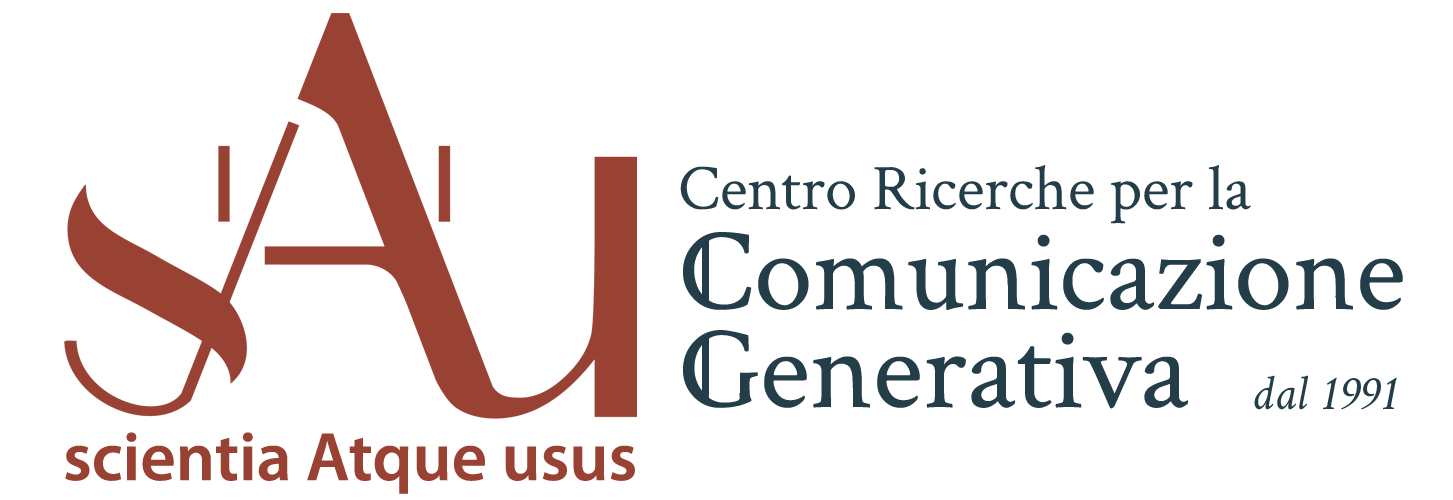
Our Research Center
“scientia Atque usus” Research Center for Generative Communication (established in 1991) is a Research Body of the Nonprofit Sector with a specific political and social mission. It encourages cooperative communication between the world of scholars, experts and highly specialized professionals (scientia) and the world of actual citizens (usus).
Generative Communication helps to strengthen cooperation, to overcome the solitude, the self-referentiality and the mechanical logic of the assembly line on which our society is based. It promotes new collaboration patterns among stakeholders, supporting community building projects in finding resources.
sAu’s research activities promote and strengthen the value of community building projects.
Each project, based on common ideals, aims to transform shared values into valuable products.
What does Generative Communication do?
Analyze
and enhance the perceived and the world of use
Build
communities in which stakeholders cooperate with researchers and experts
Bring to light
unused resources to strengthen the quality and effectiveness of Projects and their products
Design
object oriented solutions, against the current trend towards fragmentation
Develop
sector innovations that create system innovation
the impacts and innovation generated by the products/services
We Operate in Strategic Intervention Areas
We Implement Action Research Projects to Build
Healthy Territories
The sAu Research Center operates in Intervention Areas with a significant socio-economic and cultural impact – from agriculture to healthcare, from sustainability to new technologies – and develops action research projects that promote maximum cooperation between the world of science (scientia) and the world of practice (usus).
All projects of the sAu Research Center strengthen communication between institutions, businesses, associations, and organizations involved in research, and professionals,
contributing to the creation of healthy territories.
sAu Research Center works on Intervention Areas that range from agriculture to rural development, from health to healthcare, from sustainability to Cultural Heritage.
Click here for more info

sAu Research Center has created “Atque”, the Design and Communication System that supports stakeholders, researchers, experts and citizens in the development of Generative Communication Projects.
“Atque” is a suite of tools, closely connected and interactive, that are intended to carry out research, design, development, documentation, monitoring, communication and training activities.
The Values that Inspire sAu Research Center
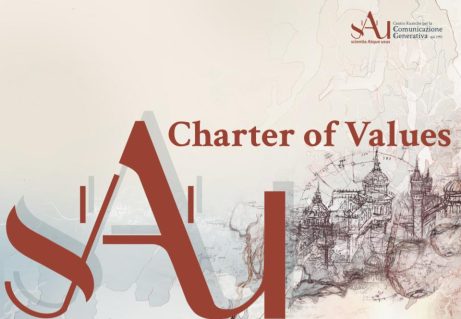
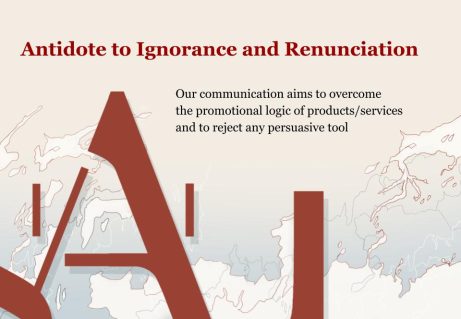
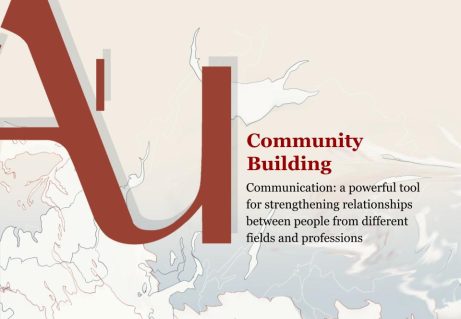
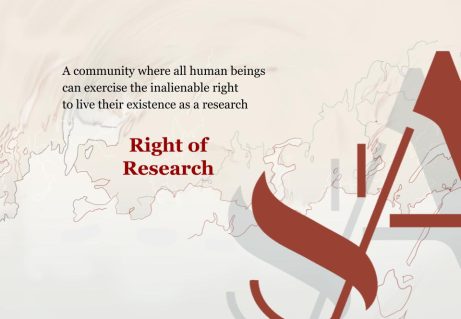
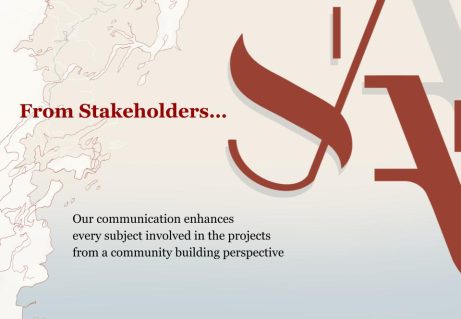
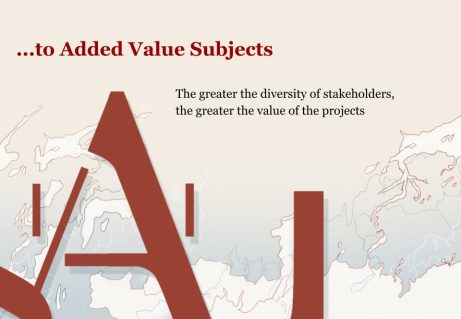
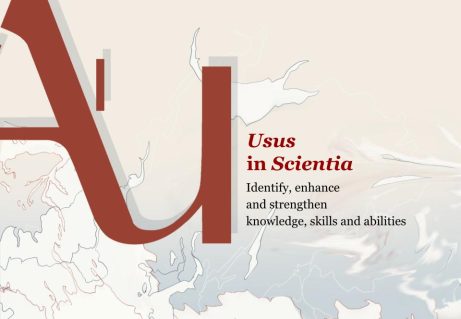
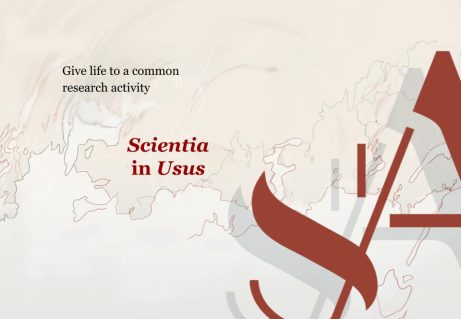
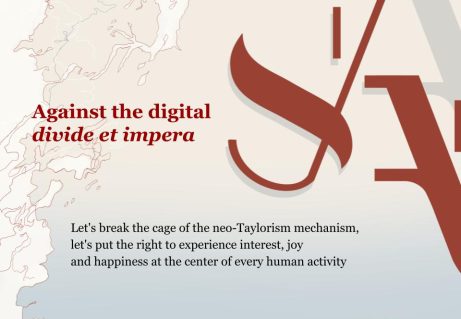
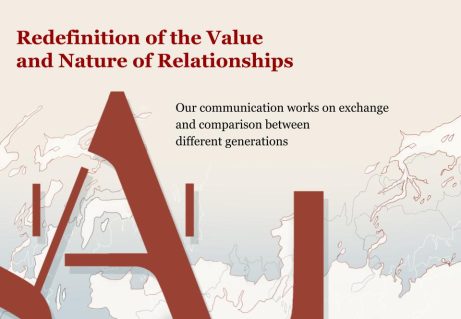
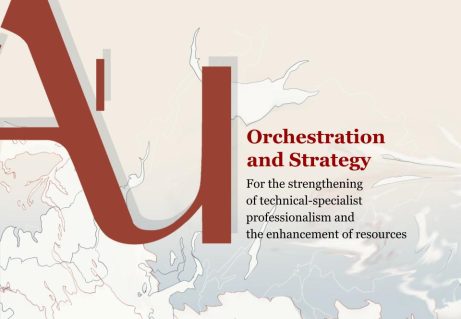
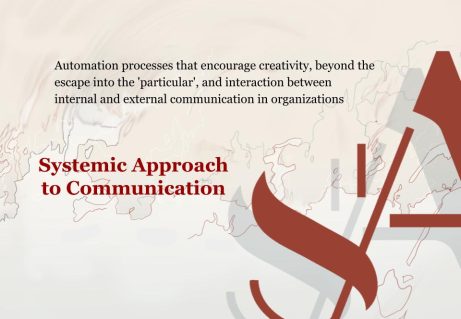
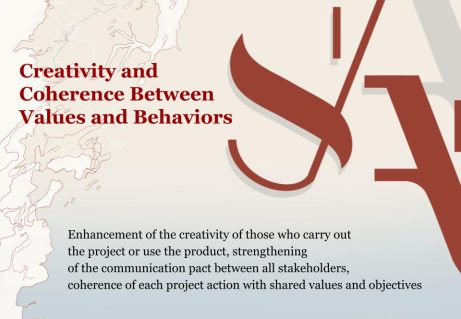













Our Intervention Areas
Agriculture and Rural Development
A New Idea and a New Practise of Value
The concept of value, and its practical application in all socio-economic, cultural and political sectors, must be radically redefined, moving away from a definition based on purely economic and financial parameters.
Our Projects are based on an idea of Agriculture and Rural Development aimed to redefine the concept of value in agriculture, strengthening, in a systemic key, the sharing of knowledge and the cooperation between all the realities that operate on the territory and that usually do not communicate with each other.
Culture and Society
We believe in a society in which everyone can exercise the right to live his/her daily lives – at work, in family, in community – in order to know, enrich and improve his/her own life.
sAu Research Center aims to broaden the concept of Cultural Heritage, proposing it as a tool through which to redesign the relationship between the tangible and intangible historical-cultural heritage and the socio-economic fabric. The projects in this area are based on community building activities to facilitate the collaboration of varied stakeholders and strengthen the identity characteristics that bring added value to the use of these important common assets.
Research and Third Sector
For a New Culture of Research
We believe that it is more urgent than ever to defend the autonomy of the world of research, and its authority and credibility, redefining the relationship on the one hand with the values that inspire it and on the other with the complex world of daily living acts of citizens.
Coming soon
Health and Healthcare
We believe that the many, possible forms of participation in health choices and the ways of using social and health services should become acts of active and conscious citizenship.
sAu Research Center has been working for years in the field of health and healthcare with the aim to initiate knowledge-generating processes in which health companies, hospitals, associations and institutions cooperate to increase the level of health literacy of citizens.
Daily sustainability
and Climate Change
A Common Action to Bring Out Unexpressed Resources
What we are experiencing is not a crisis due to a lack of resources, but it is due to the inability to recognize and value the infinite resources that we can find with our creativity and intelligence.
Coming soon
The Enhancement of Human Creativity
Technologies (old and new ones), every form of automation, mechanical and otherwise, must be rethought and redesigned to respond, first of all, to the inalienable values of our humanity.
We believe in an idea of technology that is in support of human freedom and the right of individuals to know and guide their behavior according to the values in which they recognize themselves. It is a technology based on critical intelligence and human creativity: on human touch.
The Associazione Nazionale Città dell’Olio (ANCO) has established a Research, Design and Development Area in collaboration with the "scientia Atque usus" Research Center for Generative Communication. Thanks to this new Area, ANCO intends to offer its members support in identifying competitive tenders, assistance in drafting projects and in establishing partnerships at a local, regional, national and international level.
The project aims to redefine the value of oil and olive growing in Italy, helping to implement policies to support and develop the sector capable of making it a central element in the sustainable development trajectories of our country.
The project aims also to create a community of stakeholders - public entities, institutions, citizens, producers, restaurateurs, etc. - who daily work to enhance and communicate oil and olive growing as a heritage capable of generating value for the territories.
This RIA Horizon project involves testing acritivies in three pilot areas (Florence, Gent and Espoo) to define innovative ways of communicating and offering services accessible through municipal libraries, with a focus on the culture of sustainability, inclusion and conservation of intangible cultural heritage. The aim of the project is to strengthen the mediation role of libraries between the needs of citizens and the services they can access, accelerating their transformation from places of conservation of knowledge to engines of social innovation and community reference.
The project aims to activate a Generative Documentation Center to enhance the knowledge that has been collected through the ministerial project PRIN - "Migrant children's participation and identity construction in education and healthcare", with possible extensions to other social research projects.
The aim of the project is to build an archive of active documentation, which is functional for archiving, cataloging and recalling the results of the research carried out, and - above all - for designing and implementing training objects aimed at schools (but also at other stakeholders in the sector), to involve managers, teachers and other stakeholders as co-authors of the tools they may actually need to address the difficulties associated with multiculturalism in the school.
Health and Healthcare
Health and Healthcare
This project consists of an action research aimed at developing a participatory design prototype: starting with the involvement of users – both citizens and healthcare professionals – to design a new communication model for healthcare services and telemedicine tools with a human touch to propose at an international level. The prototype will be developed starting from a specific area - the municipality of San Casciano in Val di Pesa (in the province of Florence) and surrounding territories - to enhance communication and the provision of social and healthcare services through the sustainable use (from a cultural, social, and economic perspective) of telemedicine tools. These tools aim to improve access to healthcare services for citizens at the local level, starting with the doctor-patient relationship (medical telemonitoring and telemonitoring) and extending to the use of teleassistance services for accessibility to diagnostic services and continuity of care. In this context, Generative Communication becomes the model through which the functioning of the system can be analyzed by establishing a relationship between experts – such as scientists, doctors, etc. – and patients who "are not experts" but have extensive knowledge of their own lives and daily experiences.i
The research project starts from the collection and documentation of scientific evidence in the field of Gender Health Medicine, through the involvement of experts in the fields of oncology, cardiovascular diseases, nutrition etc and the publication of dissemination contents - with a book and an online ecosystem - and a targeted communication plan to make knowledge accessible. Our aim is to develop a strategy of Generative Communication - through a community-based participatory approach - to make stakeholders aware of gender differences through several approaches: by stimulating the pre-clinical and clinical, by improving or establishing training courses within the major medical specializations, at all the relevant educational levels and involving the population in general.
In 2019, Luca Toschi and his research group established a Master in Medical-Scientific Communication and Health Services. The Master is directed by a scientific committee based at the Department of Experimental and Clinical Medicine with primary doctors of the University Hospital of Careggi in Florence. The Master has activated numerous partnerships on the territory: associations, organizations and companies in the health sector.
The project aims to study the communication model adopted by the institutions - at international, national and regional level - to promote physical activity as primary health prevention. The ultimate goal is to use the Generative Communication and its technique to create an awareness and communication campaign through the creation of an app in which the health needs of users converge with scientific information from industry experts.
The project - carried out in collaboration with Professor Felice Petraglia, director of the Department of Gynecology of the Careggi University Hospital - aims to bring out the social dimension of motherhood through listening, identification, collection and analysis of the fears that characterize the imagination of pregnant women.

The “Don Lorenzo Milani Generative Center” is a project that the sAu Research Center is developing through its own “Atque” Design and Communication System on the occasion of the celebrations for the centenary of the birth of don Lorenzo Milani, prior of Barbiana (27 May 1923 – 27 May 2023).
With this project, the sAu Research Center is building an integrated system that collects and documents photos, videos, resources, experiences that update the thought and work of don Milani, to encourage the creation of a community - composed of schools, institutions, associations and many other stakeholders - committed to reflecting on social, cultural and religious issues inspired by the teaching of Don Milani with the aim of overcoming the current critical issues related to communication, inclusion and hospitality.
On the occasion of the events organized for the centenary of the birth of the prior of Barbiana (2023) and as a starting point for the don Lorenzo Milani Generative Center project, sAu Research Center offers schools the opportunity to design and develop educational and communicative objects, that actualize the themes dear to don Milani.
The Generative Communication and its Technique since 1991
Generative Communication is a technique to create communities of values, interests and objectives that cooperate for the development of products/services.
Generative Communication, conceived by Professor Luca Toschi, by its inclusive and participatory nature, promotes collaboration and coordination between the world of research (scientia) and the world of work, institutions, citizens (usus) and propose the implementation of innovative products – ensuring the active role of the communities – in response to problems with a strong economic, social and cultural impact and to the dis-integration of specialisms and non-communicating sectors.
The solutions proposed through the use of the Generative Communication are characterized by an idea of innovation that, starting from specific aspects, becomes the driving force that leads to systemic and non-sectoral innovation processes.

Our Design and Communication System
The “Atque” Design and Communication System is an integrated system of tools intended to facilitate the cooperation among stakeholders in order to encourage and constantly expand communities of interests around a project. It is also designed to communicate the results achieved by the project through a precise strategy of content publishing that can be useful for expanding communities outside the project.
The Integrated System Atque aims to facilitate both the internal communication, the stakeholder engagement and training activities, the implementation of the networking/dissemination.
Our Design and Communication System is a suite composed of:

It is a place where sAu community carries out design, development, management and monitoring activities for projects based on Generative Communication. It strengthens collaboration and cooperation between all stakeholders involved.




It is a place where sAu community carries out design, development, management and monitoring activities for projects based on Generative Communication. It strengthens collaboration and cooperation between all stakeholders involved.

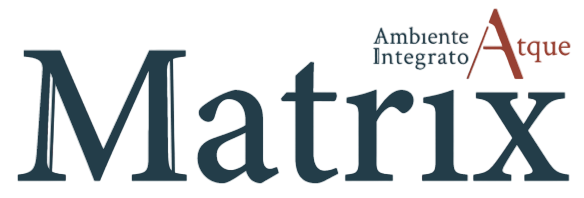

It is the training center of sAu Research Center that proposes object-oriented activities.
It responds to specific needs that emerge within the Projects carried out by sAu community: from the training reserved to the personnel of organizations, institutions, foundations and associations to initiatives addressed to stakeholders to give them a role in the project activities.
Editorial and Informative Activities as Tools for Community Building
Thanks to the “Atque” Design and Communication System, the editorial and informative activities of the sAu Research Center are connected to action research projects, aiming to expand and strengthen the sAu community
sAu Community Series

The editorial series of the sAu Research Center realize publications – books and online contents – to create communities of values, goals, and projects
sAu Journal

The journal of the sAu Research Center publishes Articles, Reviews, Notes, Generative Introductions, and Project Chronicles
Academy

The consulting and training environment shared with partners
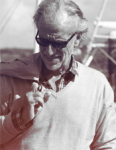
Luca Toschi
Founder and President of scientia Atque usus Research Center
Director of Center for Generative Communication of University of Florence and of Lab Center for Generative Communication of PIN – University Center (Prato).
Full Professor of Sociology of Cultural and Communicative Processes, University of Florence.

Co-founding member of scientia Atque usus Research Center

Viola Davini
Co-founding member and Association Secretary of scientia Atque usus Research Center
Ph.D.
Research fellow at Center for Generative Communication of University of Florence.
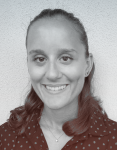
Marta Guarducci
Member of scientia Atque usus Research Center

Ludovica Mastrobattista
Member of scientia Atque usus Research Center
Ph.D.
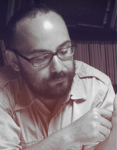
Co-founding member and Association Treasurer of scientia Atque usus Research Center
Ph.D.
Researcher at Center for Generative Communication of University of Florence.
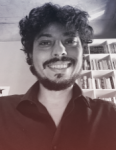
Co-founding member of scientia Atque usus Research Center
Ph.D.
Research fellow at Center for Generative Communication of University of Florence.
Contact us!
Write to viola.davini@sau-centroricerche.org
